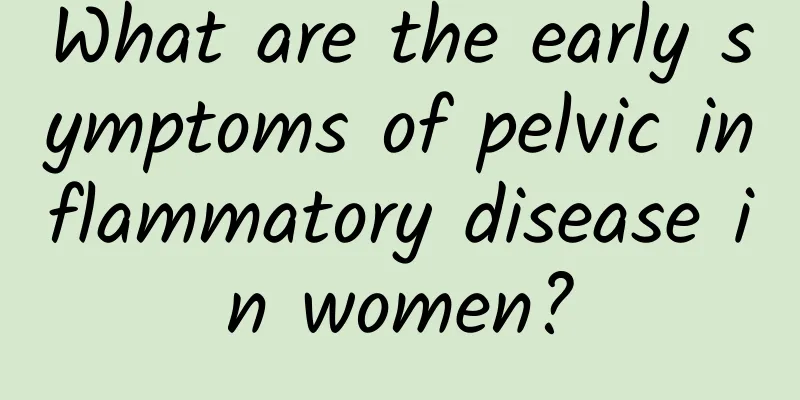Introduction to the three most common symptoms of uterine fibroids

|
Clinically, the symptoms of uterine fibroids are relatively complex. Understanding and recognizing the symptoms of uterine fibroids is very important for the treatment of uterine fibroids, which can help patients receive treatment more correctly. What are the common symptoms of uterine fibroids? The following is a brief introduction to the common symptoms of uterine fibroids. In general, common symptoms of uterine fibroids include: 1. Increased menstruation It is the most common symptom of uterine fibroids, which mostly occurs in submucosal and intramural fibroids, and manifests as menorrhagia, prolonged menstruation or irregular vaginal bleeding. The main causes of this symptom of uterine fibroids are: the area of the endometrium increases, the endometrium proliferates due to the effect of estrogen, the fibroids hinder the contraction of the uterus, and affect the blood circulation, causing the endometrium to become congested. Due to long-term bleeding, patients often have varying degrees of anemia. 2. Compression symptoms If the fibroids located in the lower part of the uterus and the cervix are incarcerated in the pelvic cavity, they can compress the pelvic tissues and nerves, causing lower abdominal pain and back pain, which are symptoms of uterine fibroids. If the fibroids grow forward or backward, they can compress the bladder, urethra or rectum, causing frequent urination, dysuria, urinary retention or constipation. When the fibroids grow to both sides, they form broad ligament fibroids, which can compress the ureters and cause hydroureteral or renal pelvis; if they compress the pelvic blood vessels and lymphatic vessels, they can cause lower limb edema, which are symptoms of uterine fibroids. 3. Pain The symptoms of this type of uterine fibroids are relatively rare. In addition to the pain caused by compression of the pelvic nerves, the pedunculated submucosal fibroids cause uterine contractions in the uterine cavity and produce pain. When the fibroids block the cervical canal and hinder the outflow of menstrual blood, it can cause symptoms of dysmenorrhea. When the pedicles of pedunculated subserosal fibroids are twisted or when the uterine fibroids become red or infected during pregnancy, they can cause more severe abdominal pain. The above is an introduction to the common symptoms of uterine fibroids. I hope it will be helpful to everyone. Once the symptoms of uterine fibroids appear, you must go to the hospital for treatment in time to avoid missing the best time for treatment. |
<<: Experts explain the health care of candidal vaginitis
>>: Common causes of irregular menstruation
Recommend
What should patients with adenomyosis pay attention to after pregnancy
Adenomyosis is a difficult gynecological disease ...
What is the reason for long-term menstruation before menopause?
Long-term menstrual irregularities before menopau...
What vegetables should be eaten to eliminate uterine fibroids?
Uterine fibroids are a common benign tumor in wom...
How to treat endometriosis infertility
Generally, women with endometriosis may suffer fr...
There are several types of abnormal leucorrhea
Abnormal leucorrhea is usually divided into physi...
Daily care for moderate cervical erosion
Cervical erosion is very harmful to women and wil...
What are the treatments for menopause?
What are the treatments for menopause? This is wh...
Exercises to improve cervical hypertrophy
Improvement of cervical hypertrophy can be achiev...
What is menopause?
A person's life is a process of continuous de...
Treatment of functional uterine bleeding with blood stasis and spleen deficiency with traditional Chinese medicine
Dysfunctional uterine bleeding has caused great d...
What to eat for moderate cervicitis
Moderate cervicitis is a gynecological disease th...
Amenorrhea with lactation requires prevention of pituitary microadenoma
The gonad axis of the human body is dormant in ch...
What are the symptoms of cystic ovarian cysts and how to treat them
What are the symptoms of cystic ovarian cysts and...
Does pelvic effusion need treatment?
The treatment of pelvic effusion depends on the c...
Can you still get pregnant with endometriosis?
Patients with endometriosis can get pregnant, but...









